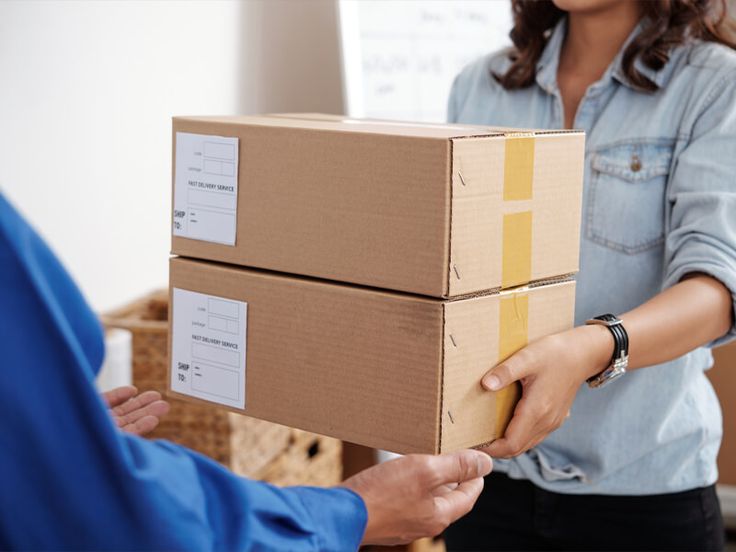Protect your Shipments From Prying Eyes with Discreet Dispatch

In the world of logistics and shipping, ensuring the confidentiality and security of shipments is paramount. Whether you’re a business shipping valuable goods or an individual sending sensitive items, the need for discreet dispatch methods has never been more critical. This article delves into various strategies and techniques to safeguard shipments from prying eyes, ensuring peace of mind and confidentiality throughout the shipping process.
Shipping items securely is not just about getting them from point A to point B; it’s also about protecting them from unauthorized access and potential theft. This article explores how businesses and individuals can maintain confidentiality and security when shipping their goods, covering everything from discreet packaging techniques to choosing the right shipping methods. Properly packaging items not only ensures their safety but also preserves their privacy throughout the shipping process.
Disregarding Discreet Dispatching
The importance of discreet dispatch cannot be overstated, especially in industries where confidentiality is crucial. Whether it’s pharmaceuticals, sensitive documents, or high-value electronics, ensuring that shipments arrive intact and undetected is vital for both legal compliance and business reputation. Discreet shipping methods help protect against theft, tampering, and unauthorized access, thereby safeguarding the interests of senders and recipients alike.
Packaging Techniques for Discreet Shipping

- Plain Packaging: Using plain, unmarked packaging is one of the simplest yet effective methods to avoid drawing attention to a shipment. Plain brown boxes or envelopes without any logos or identifiable markings make it difficult for outsiders to discern the contents.
- Inner Packaging: Inside the outer box, using opaque or colored polyethylene bags, bubble wrap, or shredded paper adds an extra layer of concealment. This prevents the contents from being identified through the outer packaging.
- Sealing Methods: Securely sealing packages with tamper-evident tape or seals provides assurance that the shipment has not been opened during transit. This is crucial for maintaining the integrity of the shipment until it reaches its destination.
Choosing the Right Shipping Carrier
Selecting a reputable and trustworthy shipping carrier is fundamental to ensuring discreet dispatch. Consider the following factors when choosing a carrier:
- Privacy Policies: Review the carrier’s privacy policies to ensure they prioritize confidentiality and adhere to strict handling procedures for sensitive shipments.
- Tracking Options: Opt for shipping services that offer limited or discreet tracking options, especially if full tracking could reveal sensitive shipment details to unauthorized parties.
- Insurance and Liability: Verify the carrier’s insurance policies and liability coverage for shipments, particularly for high-value items that require additional protection.
Specialized Shipping Services
For highly sensitive shipments, specialized shipping services offer enhanced security and confidentiality:
- Courier Services: Courier companies often provide dedicated, personalized service with strict adherence to confidentiality protocols. They offer direct delivery options without intermediate stops, minimizing the risk of exposure to unauthorized individuals.
- Secure Transport: Some logistics firms specialize in secure transport for sensitive materials, employing advanced security measures such as GPS tracking, armored vehicles, and trained personnel to safeguard shipments from start to finish.
Legal and Regulatory Considerations
Compliance with legal and regulatory requirements is essential when shipping sensitive items:
- Export Controls: Ensure compliance with export control regulations for shipments containing restricted goods or technologies that require special permits or licenses.
- Data Protection: Shipments containing personal data or confidential information must adhere to data protection laws to prevent unauthorized access or data breaches during transit.
Conclusion
Discreet dispatch is not merely a precautionary measure but a necessary practice to protect the integrity and confidentiality of shipments. By implementing the strategies outlined in this article—such as using plain packaging, choosing reliable carriers, and complying with legal requirements—senders can mitigate risks associated with unauthorized access and ensure that shipments arrive safely and securely. Whether you’re shipping sensitive documents, valuable merchandise, or personal belongings, prioritizing discreet dispatch methods is key to maintaining trust and confidentiality in the shipping process.
In conclusion, safeguarding shipments from prying eyes requires a combination of strategic planning, attention to detail, and adherence to best practices in logistics and security. By following the guidelines outlined in this article, businesses and individuals can uphold confidentiality, protect valuable assets, and ensure the safe arrival of shipments to their intended destinations.



